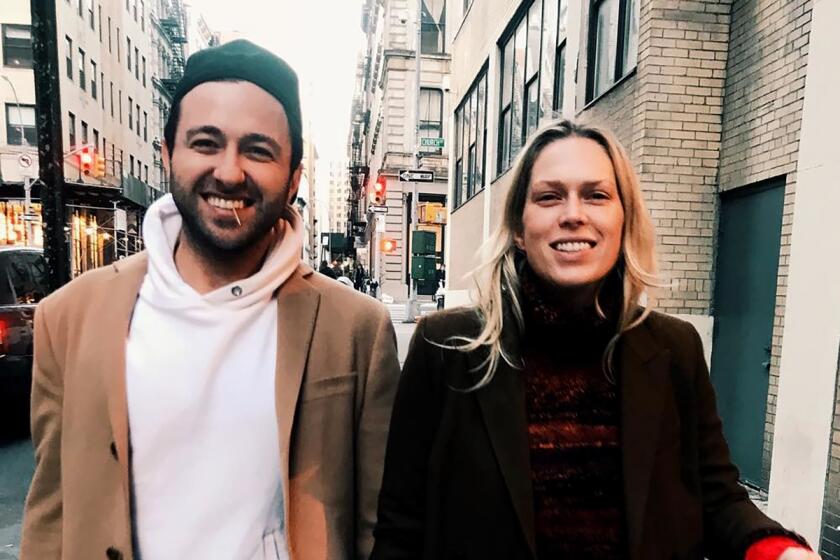Captain Marvel and the great ponytail debate for female superheroes
Carol Danvers’ mother would be so disappointed in her.
That’s all I could think of when I saw the latest batch of photos from the upcoming superhero epic “Captain Marvel,” featuring several shots of Brie Larson (a.k.a. Danvers) rocking perfectly tousled locks while embodying the eponymous character.
Time and again as a child my mom would scold me for having my hair in my face and telling me either to pull it back or find a headband immediately so I could see.
It’s becoming a trend for the genre: give female heroes full heads of hair worthy of a shampoo commercial, which is neither practical nor physically possible. Seriously, no one has that much time to style their hair and save the world. The internet agrees.
But we’ve hit a breaking point. Larson’s shoulder-length bob is just begging to fly in her face at the least opportune times, blinding her to incoming alien attacks or fire hydrants or basically anything.
Racked published a great piece in May about this phenomenon and suggested that the tendency to give superhero women supernaturally luxurious hair is rooted in sexism.
Beyond the gender politics of how women’s bodies are portrayed in comics culture, the real sticking point of the hair drama is common sense. How can you kick ass and take names if you’re constantly trying to keep your mane in check?
That’s what’s bananas about the entire controversy. Comic-book movies know that it makes far more sense for people to have their hair on lock when battling a galactic overlord — the genre just chooses to forget time and again.
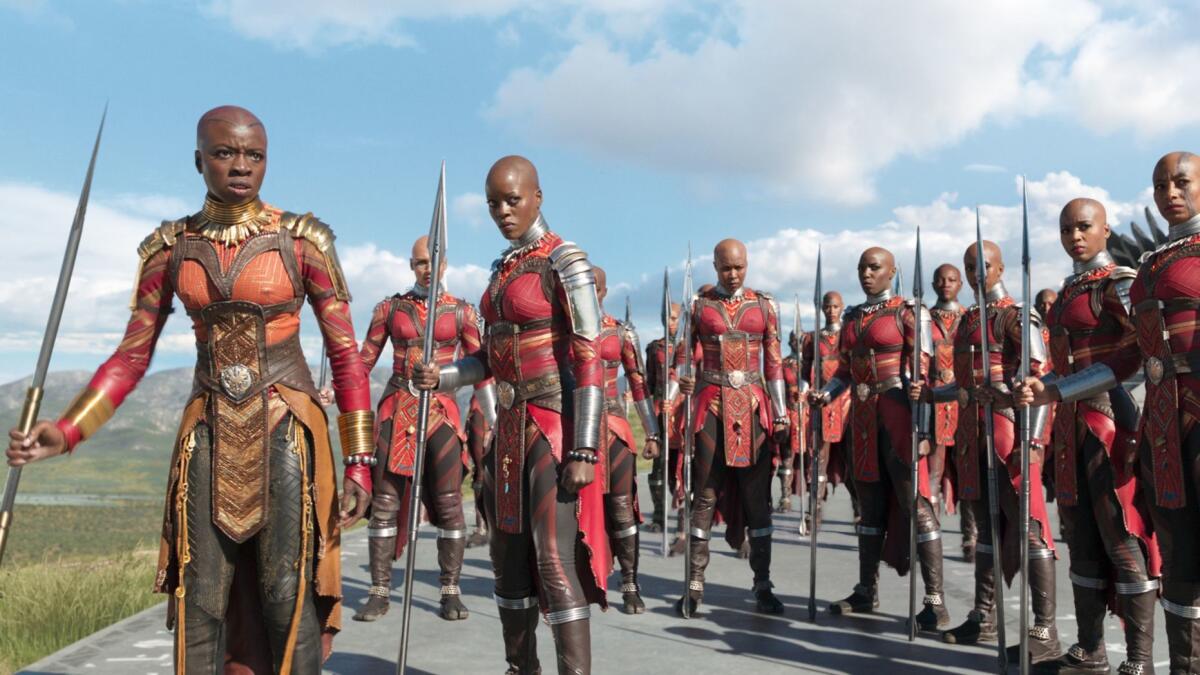
Take the Dora Milaje from Marvel’s “Black Panther,” for example. They serve as Wakanda’s special forces team, tasked with protecting the nation and the king. They are masterful fighters, loyal defenders — and completely, totally bald.
“That seems extreme,” you think. “You can’t expect all female superheroes to shave their head.”
Fine. Consider, then, the warrior women of Themyscira, featured prominently in DC Comics’ “Wonder Woman.”
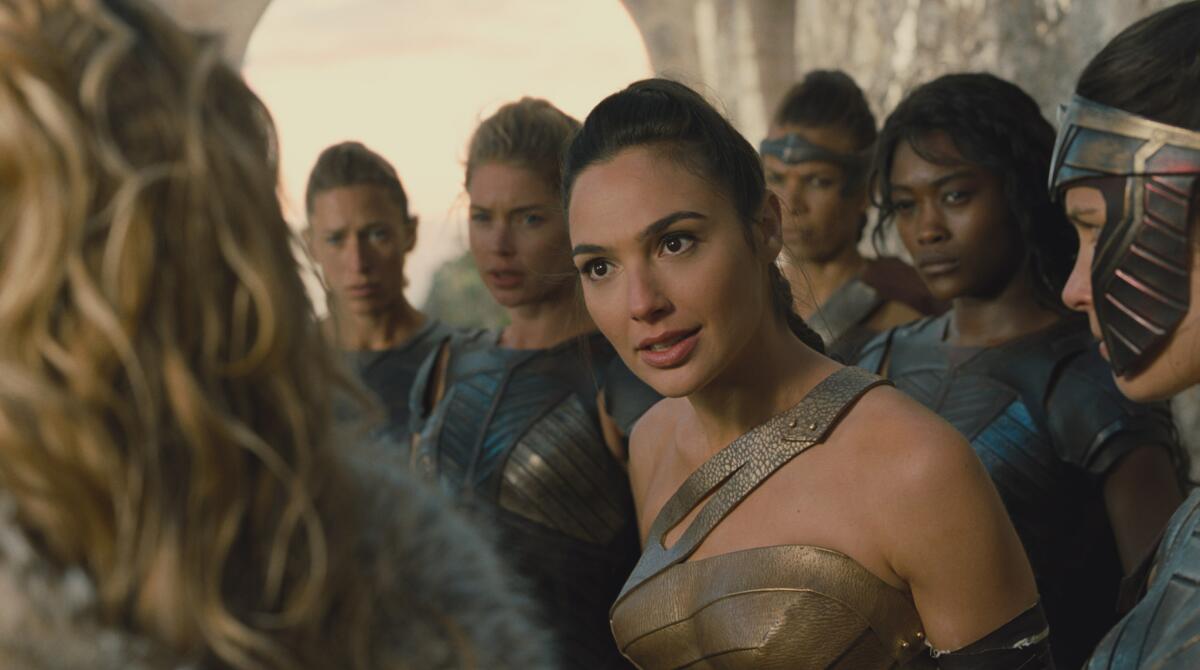
No messy, wind-blown tresses for these ladies, who make the most of ponytails and braids and up-dos.
Except, of course, when Diana (Gal Gadot) takes on her Wonder Woman gear, at which point we run into the same stupid hair issue.
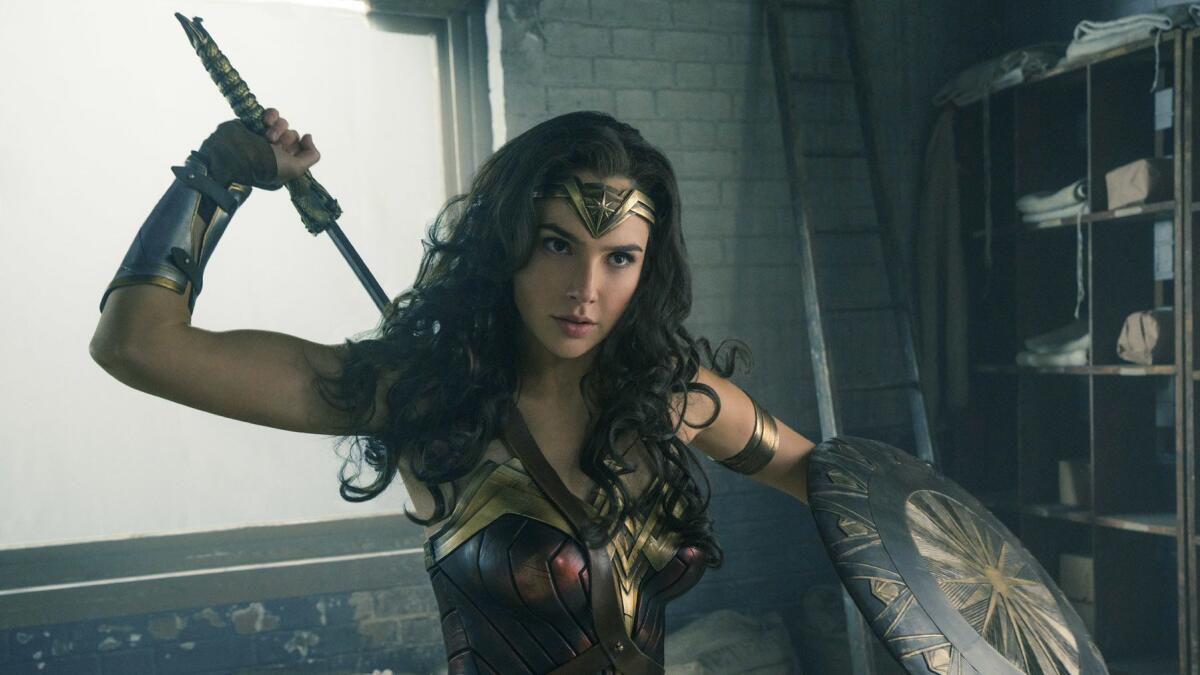
And that’s not even exclusively a Diana Prince problem.
In last year’s rollicking “Thor: Ragnarok,” Tessa Thompson played a hard-living slave trader who first appears with her hair smartly styled back (so as to better capture slaves, I guess).
But upon reclaiming her heroic status of Valkyrie, complete with costume upgrade, Thompson’s hair is suddenly free-flowing, as though her character evolution freed her from the laws of basic follicle physics.
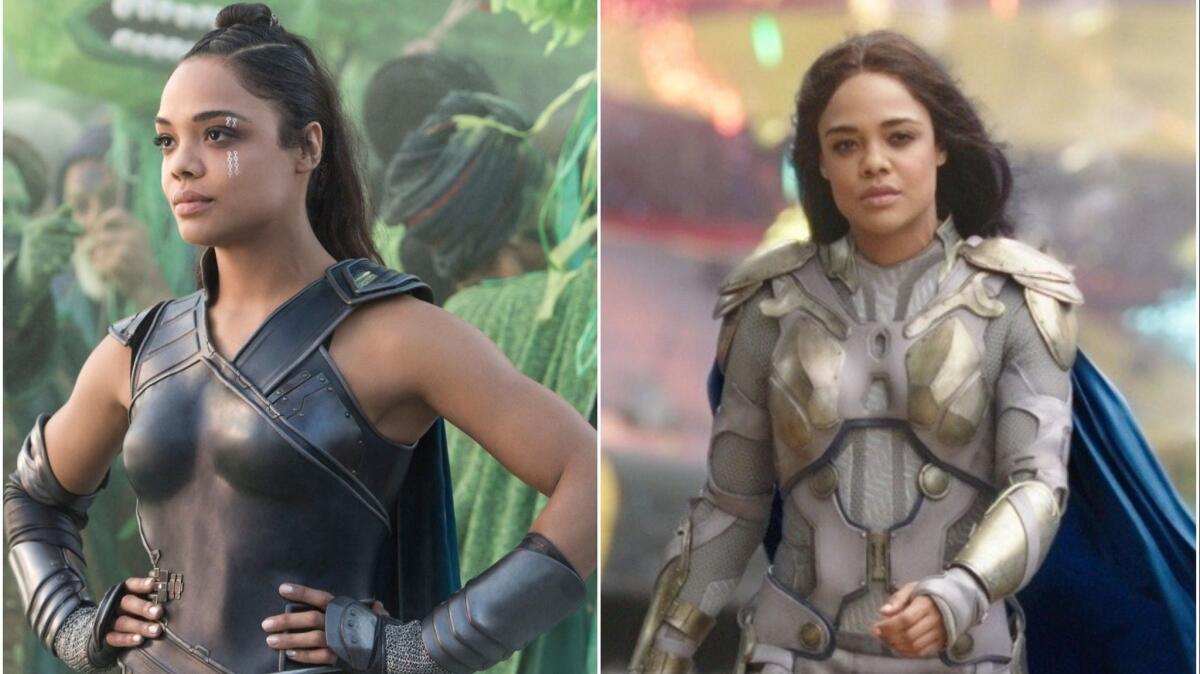
But Valkyrie isn’t the only character in the Thor universe to sport long locks. Just look at Thor and Loki.
No, really, look at them.
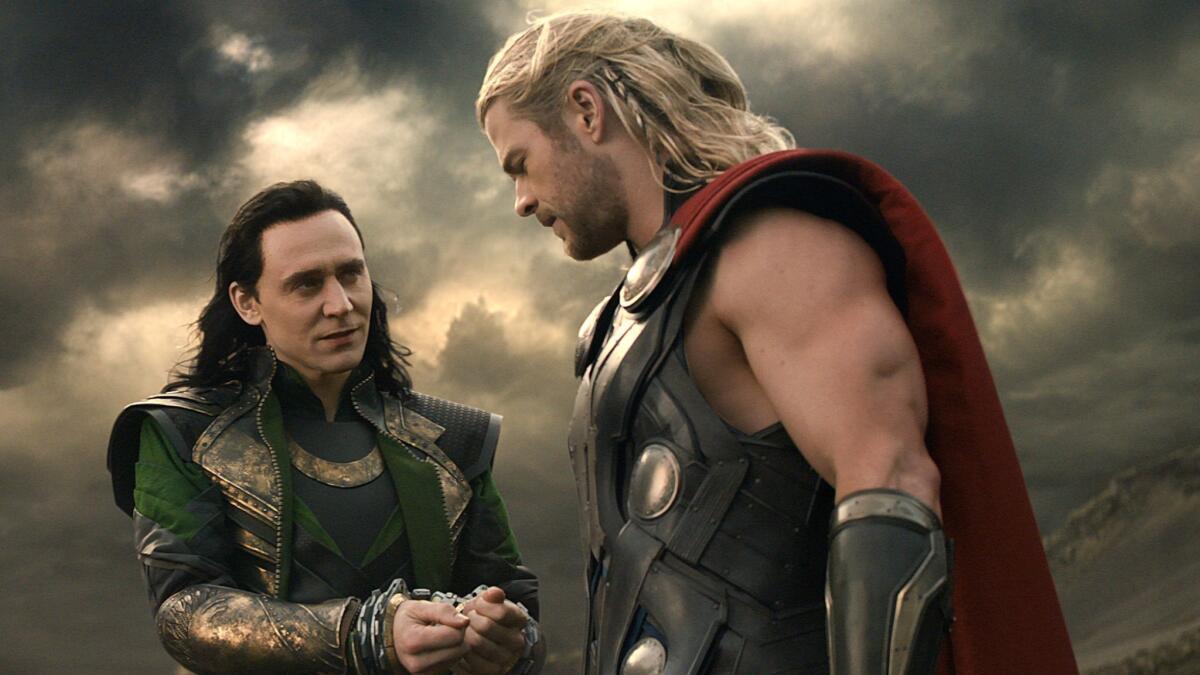
Both men have long hair but both, whether by half-ponies or braids, manage to keep it pulled out of their face.
This is madness.
Which brings us back to Captain Marvel.
It’s not so much that women can’t have long hair in superhero movies; it’s that they rarely seem to have a choice. Or alternatively, when they’re working in a professional capacity, being the best at what they do, then ponytails and the like are great.
See, again, Captain Marvel’s tamped-down look as a fighter pilot below.
But something happens when women become superheroes in earnest, as though it’s impossible to deify them without the hallmark of traditional femininity, the comic equivalent of Breck Girls.
Women come in a variety of shapes and sizes — and their hair does too.
It’s time to allow our superheroes the power of choice. The choice to pull their hair back when duty calls or hack it all off because climate change means it’s 110 degrees for six months out of the year and they’re wearing layers of heavy artillery, for heaven’s sake.
What matters is that women are allowed to shake loose of their Scrunchie-free chains and own their follicular decisions.
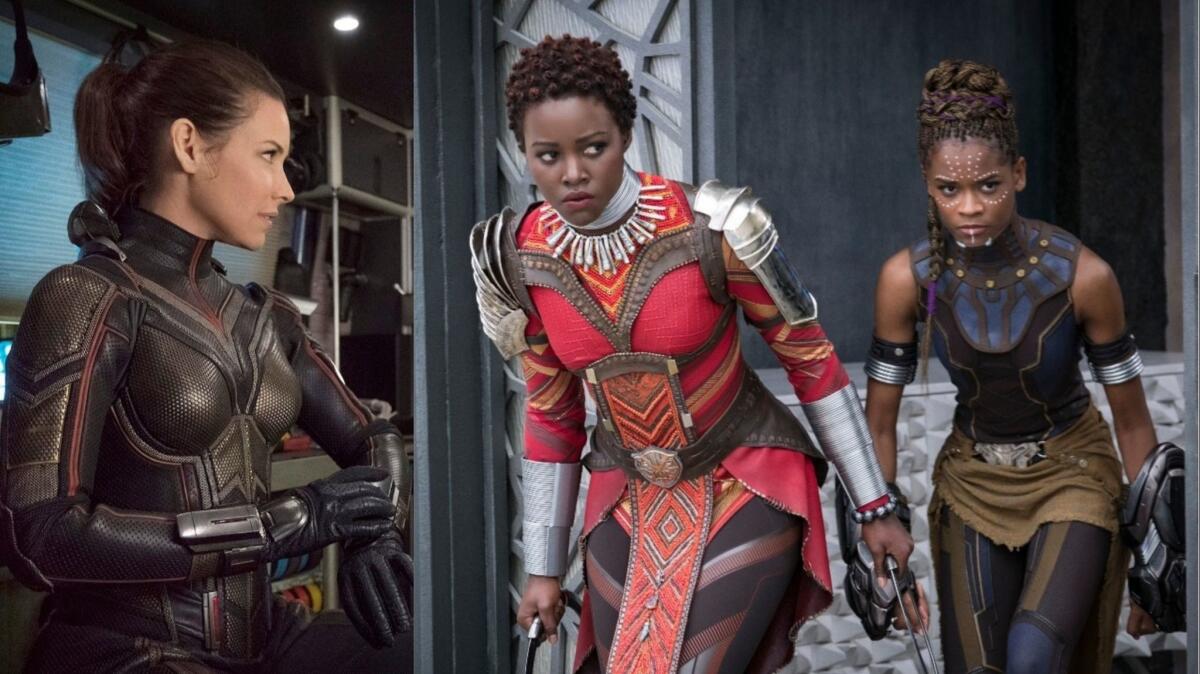
The biggest entertainment stories
Get our big stories about Hollywood, film, television, music, arts, culture and more right in your inbox as soon as they publish.
You may occasionally receive promotional content from the Los Angeles Times.








